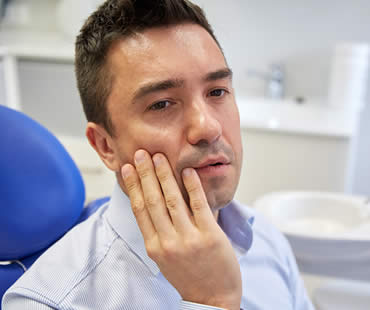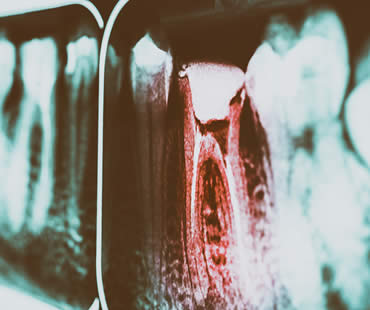Root canal therapy treats the interior of the tooth. The final step in root canal treatment is placing a permanent restoration to protect the tooth and restore it to full form and function. This procedure should be performed within one month of your root canal treatment to decrease the risk of re-contamination or breakage of the treated tooth. Having a permanent dental restoration placed will extend the success of root canal treatment by preventing damaging leakage or fracture.
The general condition of the treated tooth and the amount of tooth structure lost will determine if the tooth would be best restored with a permanent composite filling or a dental crown. For small cavities in front teeth with insignificant tooth structure loss, your dental professional may place a tooth-colored filling after a root canal procedure.
More often, your dentist will recommend the placement of a dental crown to restore a root canal treated tooth. Teeth that have had root canal therapy can be fragile, and a dental crown provides the best protection against future bacterial contamination and fracture. A dental crown is made in a laboratory and custom fit your tooth. Crowns are made of porcelain, metal, or a combination of the two. Dental crowns can be placed on front or back teeth, and are especially appropriate for molars that must withstand heavy chewing forces.
Having a root canal treated tooth restored with a dental crown or permanent filling will extend the success of your treatment. If you are showing symptoms of a damaged or diseased tooth, a properly performed root canal treatment and permanent restoration can save your tooth and extend its function for a lifetime.
We look forward to seeing you in our Weymouth dental office













